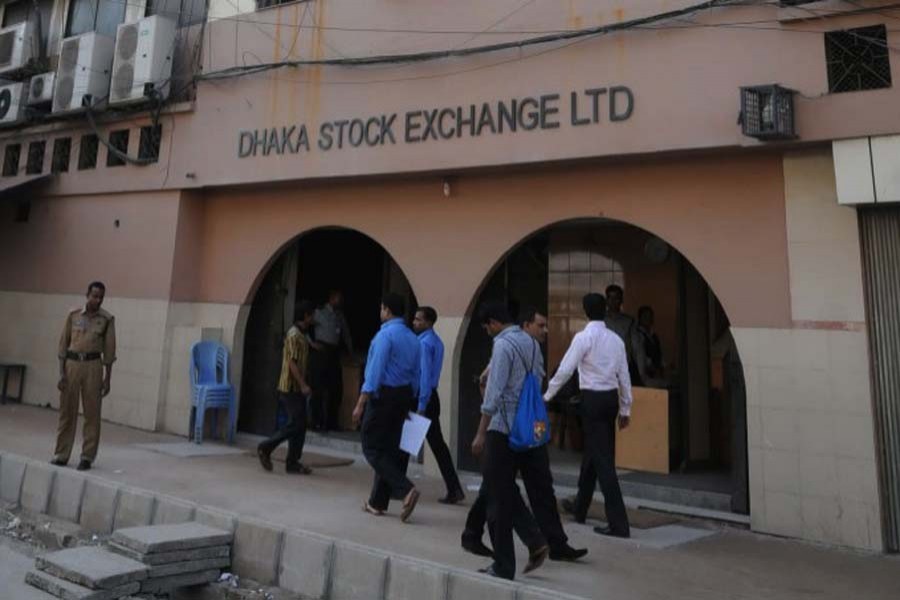Much to the disappointment of the policymakers, the country's stock market instead of showing any sign of recovery recorded a continuous fall during the first couple of weeks of the new financial year (FY), 2019-20.
The main index (DSEX) of the country's premier bourse -- the Dhaka Stock Exchange (DSE) -- lost 330 points or 6.08 per cent in 10 trading sessions since the budget for the FY 2020 was adopted by parliament on June 30 last. The market capitalisation also shrank by Tk 211 billion during the same period.
What is more worrying is the plunge of the DSE main index to a 30-month low on July 15 last, prompting a section of so-called investors to take to the street in protest against, what they alleged, the failure of the capital market regulator to address the problem of manipulations and wrongdoings in the market.
The stock market watchers are rather bored by all these meaningless ups and downs of the market and the stage-managed protests by a small section of investors who are no less responsible for the current state of the market.
These investors do make the brokerages as their homes. And they are the persons whom the so-called manipulators do often use to materialise their evil schemes.
Even a section of unscrupulous listed companies are found hiring the services of these investors to work as muscle-flexing investors during their annual general meetings. They are found to be so dominant that genuine shareholders get little scope to raise questions about the company matters. However, these days, genuine shareholders have almost stopped attending the AGMs of listed companies.
However, these are all small matters if seen in the context of the overall situation prevailing in the stock market.
The government has been trying to buoy up the market for a long time. It has tried a number of measures so far. But the market has staunchly remained subdued, more or less. The securities regulator has rewritten the public issue and relevant other rules on a number of occasions during the past few years. Lately, the government, in an effort of boost the investors' mood, has tried to compel the companies to disburse cash dividends instead of stock dividends. However, the government had to revise the original budgetary proposals in this connection coming under pressure from businesses.
Yet the market behvaiour has become worse than before. The slide in stock prices since the declaration of the budget is bound to sour the mood of the government and also the investors.
Such behaviour of the market is puzzling, if seen in the context of the performance of the economy. The performance does not match all the rosy official statistics being churned out very often on major macroeconomic indicators.
With the economy growing at a robust rate between 7.0 and 8.0 per cent, the stock market should not perform so poorly. The economic growth rate has been rising unabatedly. The stock market, however, is nowhere in that growth picture. But why? The stock market cannot be an isolated island in an economy that is growing at an enviable rate. But the government appears to be clueless about making it a true partner in progress.


